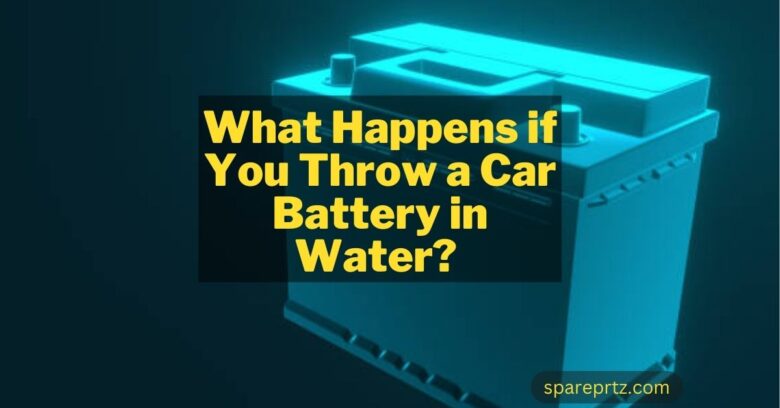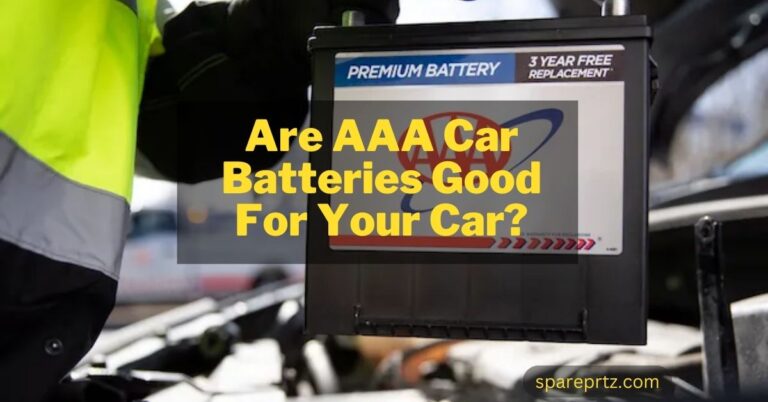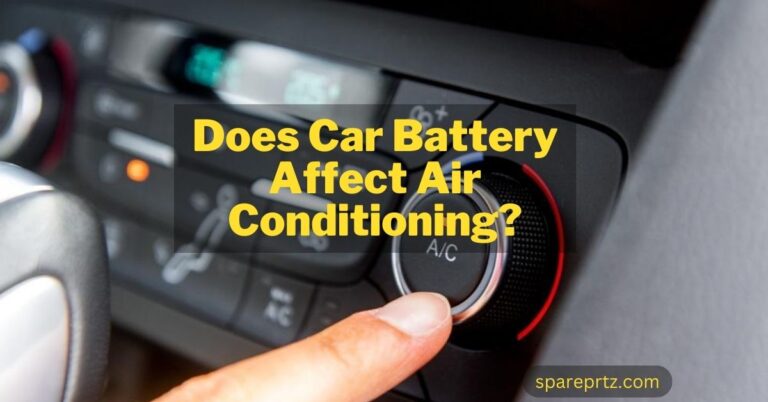What Happens if You Throw a Car Battery in Water? – Real Dangerous Explosion
Sometimes, a question arises: What would be the consequences if You Throw a Car Battery in Water? You might think that it is a harmless activity. But, the fact is entirely opposite to your thoughts.
You would be amazed by knowing the real consequences, as this experiment can have troublesome and dangerous results.
- 1 How Can Throwing a Car Battery in Water/Ocean Be Dangerous?
- 2 Composition Of Batteries Harmful for Life:
- 3 What Type of Dangerous Reactions Take Place on Throwing a Battery in Water/Ocean?
- 4 How Does It Impact Our Ecosystem?
- 5 Can Hydrogen Gas from Battery lead to explosions?
- 6 How Does Throwing Car Batteries in the ocean Impact Our Health?
- 7 How Can We Dispose Car Batteries Properly?
- 8 Recycling of Car Batteries for Beneficial Purposes:
- 9 How Can Public Awareness Prevent Disasters from Car Batteries?
- 10 Video Guide:
- 11 Wrapping Up The Article:
- 12 Most Related Articles:
How Can Throwing a Car Battery in Water/Ocean Be Dangerous?
The batteries used in cars are not only simple energy supplier containers. Instead, they are designed very complexly to supply power to your vehicles. The batteries contain sulphuric acid, which acts as an electrolyte. This corrosive chemical facilitates chemical reactions that take place inside the battery.
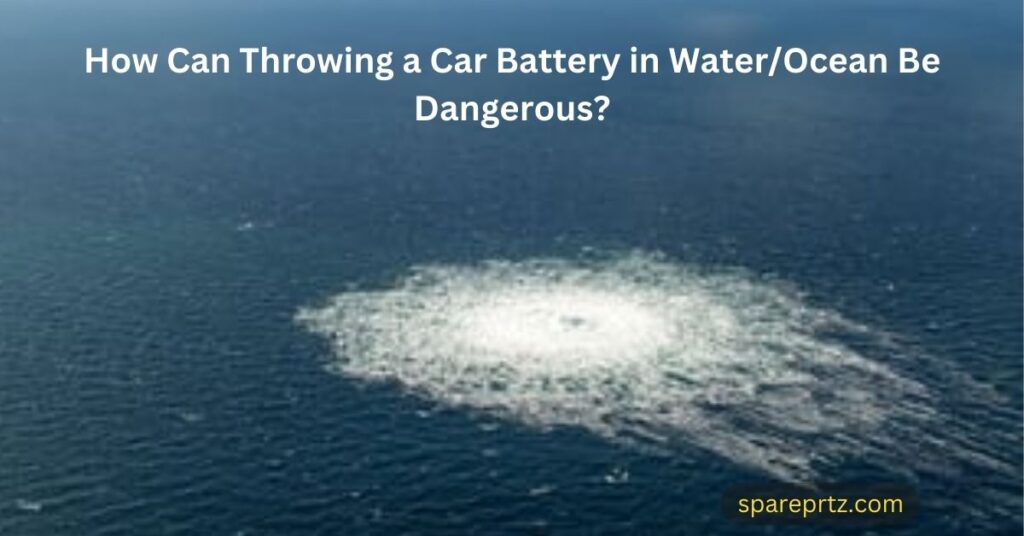
Keep in mind that this acid is really harmful to both the environment and humans. If the battery is still connected to the car’s electrical system, it can cause an electrical shock if someone comes into contact with it.
Composition Of Batteries Harmful for Life:
This powerhouse is composed of lead-acid cells. These cells are immersed in the corrosive sulphuric acid for their proper functionality. Lead acid cells help store and utilize energy.
These components are kept in equilibrium for efficient power consumption and storage. This balance is disturbed when this battery interacts with water, and harmful consequences occur.
What Type of Dangerous Reactions Take Place on Throwing a Battery in Water/Ocean?
When a car battery encounters water, a sequence of reactions takes place. The corrosive acid makes harmful products when it reacts with hydrogen and oxygen present in water molecules. This toxic reaction produces poisonous fumes. on throwing a Car Battery in water. As well as acid droplets may be scattered, resulting in long-term negative effects.
The reaction between water and sulphuric acid directly produces hydrogen and sulfate ions. This decomposition results in the release of detrimental hydrogen gas. Whether this flammable gas resides in the battery’s casing or spreads outside in the environment, it is harmful in both cases.
How Does It Impact Our Ecosystem?
The products released in the reaction can create a severe mess due to improper disposal. Hydrogen and sulfate ions pollute the environment badly. If disposed of in water, they can harm aquatic life and water resources.
On the other hand, If they are disposed of in the soil, these poisonous ions lead to soil degradation and reduced plant growth. Thus, the sensitive equilibrium of our ecosystem is destroyed with long-lasting outcomes.
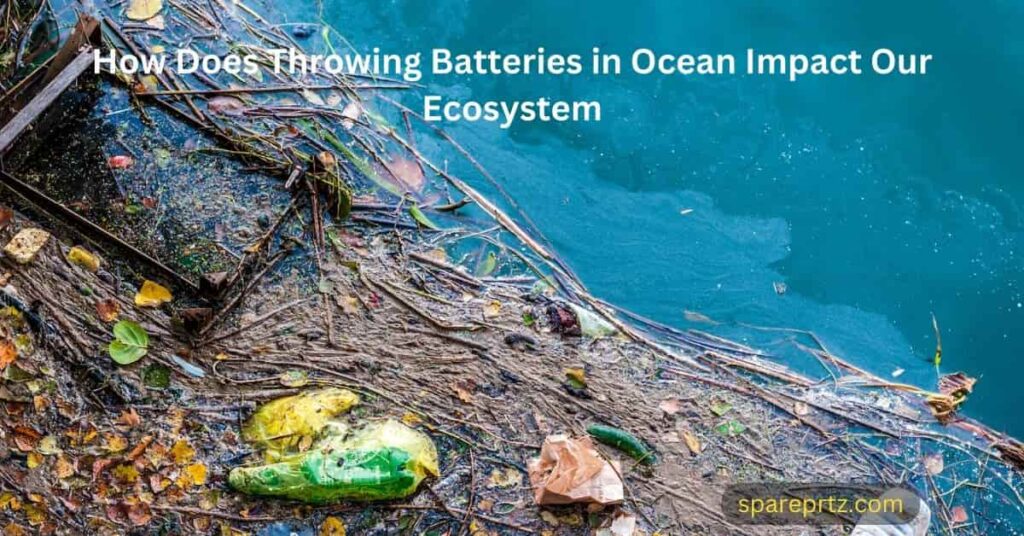
Aquatic ecosystems are particularly vulnerable to the effects of battery acid contamination. Sulfuric acid can lower the pH of water bodies, making them more acidic.
This disrupts the habitat of aquatic organisms, affecting their growth, reproduction, and overall survival. Even small amounts of battery acid can have significant and lasting impacts on aquatic ecosystems.
Can Hydrogen Gas from Battery lead to explosions?
The release of hydrogen gas is hazardous in the reaction of acid and water as it is a highly flammable gas. When released into the environment, it can form explosive mixtures with air because air also contains many gases.
It is so fierce that it can ignite fire even if released in an open environment. When it comes to confined places, like houses or shops, etc., the consequences become more and more severe. Harmless activity can be this much hazardous.
This hydrogen gas cannot be detected without odor or color. This gas gives no alerts or warnings; it just bursts the explosion suddenly. This undetectability makes it more dangerous as you can’t take any precautionary measures.
How Does Throwing Car Batteries in the ocean Impact Our Health?
This reaction between the acid of car batteries and water can bring serious health issues.
- Regarding contact with the skin, it can cause serious problems like skin burns, severe irritation, etc.
- Contact with eyes can lead to even more serious damage, like blindness.
- When humans inhale these detrimental fumes, they can destroy the lungs and cause respiratory issues like difficulty breathing, asthma, etc. We can see how hazardous this experiment can be!
How Can We Dispose Car Batteries Properly?
Proper disposal is crucial when it comes to harmful poisonous chemicals, as they can cause a potential hazard if disposed of improperly. These hazardous chemicals must be handled carefully so that explosions can be prevented.
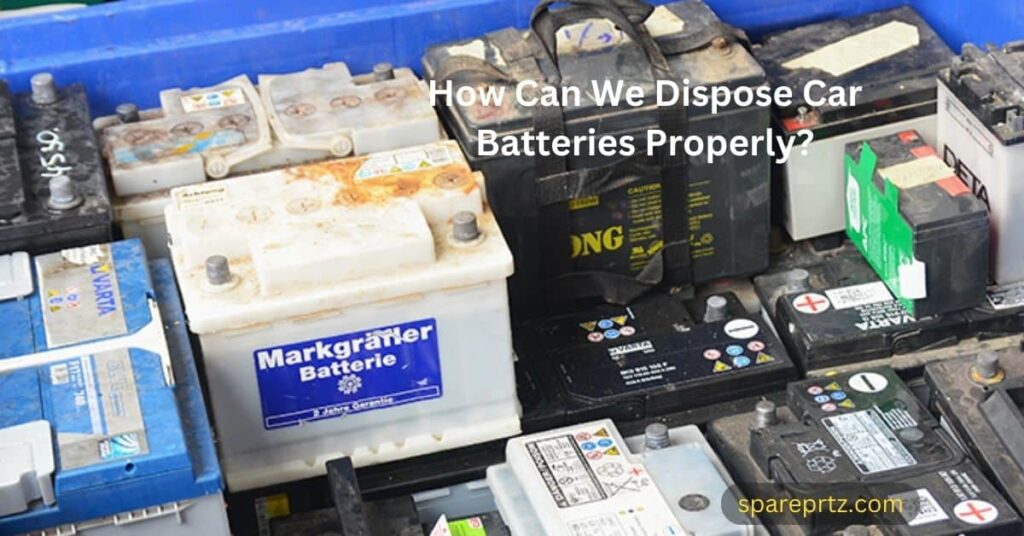
There are proper places for the disposal and recycling of these acid-based batteries, like some automotive stores or recycling centers, because their removal requires adequate equipment and expertise for the safe reusability of valuable components of these batteries.
Recycling of Car Batteries for Beneficial Purposes:
Car batteries typically contain lead-acid cells. This plastic casing, lead, and acid can be saved for reuse by recycling. This is the best way of disposing of car batteries as it does not harm the ecosystem or humans.
Rather, it gives benefits to the automotive industry by lessening the demand for new raw materials. Thus the ecosystem and human health are saved along with availing the benefits.
How Can Public Awareness Prevent Disasters from Car Batteries?
Public awareness can prevent much damage as prevention is far better than cure. We can promote proper ways of disposal by educating the public through electronic and print media.
Government officials, automotive industrialists, and environmental organizations can collaborate to raise awareness about potential hazards and their prevention. This way, we can develop a responsible culture that knows the importance of ecological and human health safety.
Improper battery disposal poses a threat to the environment, water, soil, and living beings. Media can show the benefits of recycling to promote an innovative mindset so that individuals can make informed decisions for the well-being of humans and ecosystems.
Video Guide:
Wrapping Up The Article:
Throwing a car battery in water/Ocean seems a very harmless and simple activity, but it can lead to adverse consequences. In this article, we have covered all the results of improper disposal of car batteries.
Considering the mentioned proper ways to dispose of batteries, you can prevent yourself and your belongings from noxious damages. Just adopt a responsible attitude and best practices for the prosperity of living beings and the environment.
Most Related Articles:
- What Is Round Cylinder On Top Of A Classic Car Engine? All About Air Filters in 2024
- Can a Blown Fuse Affect Electric Power Steering? Best Guide in 2024
- Can A Bad Power Steering Pump Cause A Rough Idle? Causes and Fixes in 2024
- What Happens if You Throw a Car Battery in Water? – Real Dangerous Explosion
- Can You Use Pledge on Car Interior: Impact of Pledge on Different Parts of Car

